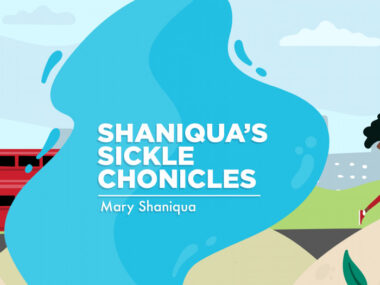Upcoming Phase 2a trial to test oral desidustat in sickle cell disease
Therapy is approved in India as Oxemia for treating people with anemia
Written by |

Zydus Lifesciences is launching a proof-of-concept Phase 2a clinical trial to evaluate the safety and efficacy of its oral candidate desidustat in people with sickle cell disease (SCD). The study is the result of a collaboration with the Indian Council of Medical Research (ICMR).
“Public-private partnerships in the healthcare sector is essential to deliver novel [drugs] to achieve the goals of the National Sickle Cell Anaemia Elimination Mission,” Pankaj Patel, chairman of Zydus, said in a company press release. “The initiation of this study reaffirms hope for the 20 million sickle cell-affected patients in the country for a high potential novel treatment.”
Desidustat is approved in India under the name Oxemia for treating people with anemia, or a shortage of red blood cells, associated with chronic kidney disease (CKD).
“Desidustat was invented in India, and patients with sickle cell disease need therapies in addition to the currently available drug, hydroxyurea,” said Rajiv Bahl, MD, PhD, the secretary of the Government of India’s department of health research and the director general at ICMR.
In SCD, mutations in the HBB gene give rise to a faulty version of hemoglobin, the protein that carries oxygen in red blood cells. As a result, red blood cells adopt a sickle-like shape, leading to their premature destruction and anemia. The misshapen and rigid cells can also block blood flow, causing episodes of severe pain called vaso-occlusive crises (VOCs).
According to India’s National Health Mission, there are about 20 million people with SCD in the country, with an estimated 50,000 children born with sickle cell anemia, the most common type of SCD, each year. The National Sickle Cell Anaemia Elimination Mission was initiated to put an end to SCD as a public health problem in India before 2047.
Studying oral desidustat for sickle cell disease
Hydroxyurea, an oral medication approved to reduce the frequency of VOCs and lessen the need for blood transfusions, is a standard treatment for people with SCD. It’s believed to work by increasing levels of fetal hemoglobin, an alternative version of hemoglobin made in early fetal development, but not after birth. Hydroxyurea is not universally effective, however, and is associated with side effects like low levels of immune neutrophils and clotting-promoting platelets, according to Zydus. And while blood transfusions provide a source of healthy red blood cells, they can be expensive and inaccessible to many. They can also trigger adverse immune responses, red blood cell destruction, and iron overload.
Desidustat, developed by Zydus, stimulates the production of erythropoietin (EPO), a signaling molecule mainly secreted by the kidneys in response to low blood oxygen levels, activating the production of red blood cells in bone marrow.
Phase 2 trial data showed desidustat increased hemoglobin levels in a dose-dependent manner in people with anemia secondary to CKD. The therapy was also not inferior to standard treatments for patients undergoing dialysis and those not having dialysis in Phase 3 studies. Dialysis is a procedure that helps the body remove extra fluid and waste products from the blood when the kidneys are unable to.
The new multicenter, proof-of-concept Phase 2a trial (CTRI/2024/06/068363) will evaluate oral tablets of desidustat against a placebo in SCD patients.
The study’s primary goal is to assess the proportion of patients with a hemoglobin response, defined as an increase in hemoglobin of at least 1 g/dL after four and eight weeks. Key secondary goals include changes in hemoglobin levels and percentage of sickle hemoglobin, along with the proportion of patients needing blood transfusions or experiencing VOCs.
The trial will be co-funded and co-monitored by ICMR’s Indian National Clinical Trial and Education Network (INTENT).
“This collaboration reflects our commitment to advancing clinical research in India through strategic public-private partnerships,” Bahl said. “Our vision is to ensure that India continues to lead in the development of innovative and affordable healthcare solutions.”



